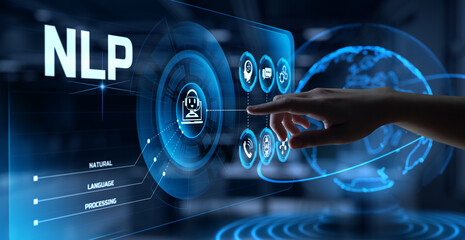Natural Language Processing Unleashing the Power of Human Communication

Natural Language Processing (NLP) is an interdisciplinary field of artificial intelligence that aims to bridge the gap between human language and computer understanding. By enabling machines to comprehend and process human language, NLP revolutionizes the way we interact with technology. From voice assistants and language translation to sentiment analysis and chatbots, NLP is at the heart of modern AI applications. In this article, we dive into the fascinating world of Natural Language Processing, exploring its core concepts, applications, and the impact it has on various industries.
Understanding Natural Language Processing
NLP focuses on the interaction between humans and machines using natural language, which can be spoken or written. It involves the analysis, interpretation, and generation of human language, transforming unstructured text or speech into structured data that machines can understand and act upon. The field draws from linguistics, computer science, cognitive psychology, and data science to build sophisticated algorithms that process human language.
Core Concepts of NLP
a) Tokenization: Breaking a text into smaller units, or tokens, such as words or phrases, to facilitate analysis.
b) Part-of-Speech (POS) Tagging: Assigning grammatical tags (e.g., noun, verb) to each token in a sentence.
c) Named Entity Recognition (NER): Identifying and categorizing entities like names, locations, or dates in a text.
d) Sentiment Analysis: Determining the sentiment or emotional tone of a piece of text, often used for social media monitoring or customer feedback analysis.
e) Machine Translation: Translating text from one language to another, as seen in language translation apps and services.
Applications of Natural Language Processing
a) Virtual Assistants: NLP powers voice-controlled virtual assistants like Siri, Alexa, and Google Assistant, enabling users to interact with their devices conversationally.
b) Sentiment Analysis: Businesses use NLP to analyze customer sentiments and feedback from reviews or social media, helping improve products and services.
c) Language Translation: NLP facilitates real-time translation between different languages, breaking language barriers and fostering global communication.
d) Chatbots: AI-driven chatbots use NLP to understand user queries and provide human-like responses, enhancing customer support and user engagement.
e) Information Retrieval: NLP helps search engines understand user queries and deliver relevant results.
Impact on Industries
a) Healthcare: NLP aids in extracting valuable insights from medical records, assisting in diagnosis, treatment recommendations, and drug discovery.
b) Finance: NLP is used to analyze financial news, reports, and social media data to predict market trends and assess investment risks.
c) Customer Service: Chatbots powered by NLP streamline customer interactions, reducing response times and improving customer satisfaction.
d) Education: NLP enhances language learning tools, enabling personalized tutoring and automated grading systems.
Conclusion
Natural Language Processing has transformed the way we interact with technology, making it more human-centric and accessible. As NLP continues to advance, its impact will ripple across various industries, revolutionizing how businesses operate, how healthcare is delivered, and how we communicate with machines. With ongoing research and breakthroughs in NLP, the future promises even more sophisticated language understanding, opening doors to new opportunities and challenges in the world of artificial intelligence.
e las CNN, expandiendo tus habilidades en el campo del aprendizaje profundo. ¡Explora y diviértete mientras te sumerges en este apasionante tema!
Read More: Cryptocurrency Adoption Unleashing the Future of Digital Finance





